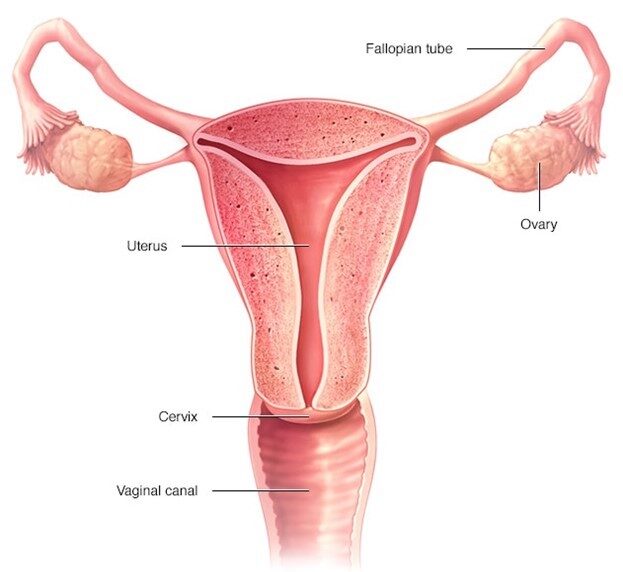Other Cysts
There are other types of cysts that are not related to menstrual cycles:
- Dermoid cyst. Also called a teratoma, this cyst forms from reproductive cells that make eggs in the ovary (germ cells). The cyst can contain tissue, such as hair, skin, or teeth. This type of cyst is rarely cancer.
- Cystadenoma. This type of cyst develops from cells on the surface of an ovary. The cyst might be filled with a watery or mucous material. A cystadenoma can grow very large.
- Endometrioma. Endometriosis is a condition that causes cells similar to those that line the inside of the uterus to grow outside the uterus. Some of the tissue can attach to the ovary and form a cyst. This is called an endometrioma.
Dermoid cysts and cystadenomas can become large and move the ovary out of position. This increases the chance of painful twisting of the ovary, called ovarian torsion. Ovarian torsion may reduce or stop blood flow to the ovary.
Risk factors
- Hormonal problems. These include taking a fertility drug that causes you to ovulate, for example, clomiphene or letrozole (Femara).
- Pregnancy. Sometimes, the follicle that forms when you ovulate stays on your ovary throughout pregnancy. It can sometimes grow larger.
- Endometriosis. Some of the tissue can attach to your ovary and form a cyst.
- Severe pelvic infection. If the infection spreads to the ovaries, it can cause cysts.
- Previous ovarian cysts. If you’ve had one ovarian cyst, you’re likely to develop more.
Are ovarian cysts serious?
Usually, no. Most ovarian cysts are harmless, and they often go away on their own eventually. Some types of cysts are more likely to become cancerous or cause complications, but this is rare. Less than 1% of ovarian cysts are cancerous. And your provider can monitor any concerning cysts closely to reduce your risk of experiencing complications.
Complications
- Cancerous cyst. Ovarian cysts that develop after menopause are more likely to be cancerous than cysts that form before menopause.
- Ruptured ovarian cyst. Functional cysts commonly rupture without causing any negative symptoms. But sometimes, a ruptured cyst can cause severe pain and swelling in your belly. The larger it is, the greater likelihood it has of breaking.
- Ovarian torsion. Cysts can grow so big that they distort the shape of your ovary, increasing the likelihood that it’ll twist. The twisting can prevent blood flow to your ovary, causing it to die. Extreme pain, nausea, and vomiting are all signs of ovarian torsion.
Seek medical assistance right away if you’re experiencing the symptoms of a ruptured ovarian cyst or ovarian torsion.


